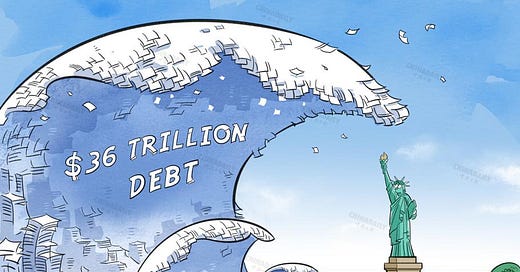“We always say live for today and don't waste time worrying about tomorrow. But what keeps us up at night is knowing that tomorrow is roaring down on us like a tsunami, and a lot of us don't know how to swim.” ~Barbara Nickless
I’m sure none of us can forget the images from that Boxing Day in 2004. At around 8am, a magnitude 9.1 earthquake struck in the ocean floor of the Indian Ocean. The epicenter was off the west coast of Aceh in northern Sumatra, Indonesia. The undersea megathrust earthquake was caused by a rupture along the fault between the Burma plate and the Indian plate. The thrust was so strong that it set off giant waves across the entire Indian Ocean.
The first giant waves of the tsunami reached Banda Aceh, an Indonesian city of about 300,000 people, within 15 or 20 minutes of the earthquake. Few residents of the densely populated area realized that the earthquake they had felt could cause a tsunami, and there was little time to flee to higher ground. In the aftermath of the tsunami an estimated 61,000 people died in this city alone.
While there's no precise number as to how many died, it’s estimated that approximately 300,000 people died in the 2004 Indian Ocean tsunami across multiple countries. Many of the fatalities were among tourists, especially in Thailand and other popular destinations. For example, around 2000 Europeans died in Thailand alone. Additionally, over 500 German and Swedish tourists were among the deceased.
Traveling over seven hours and as fast as 500 mph, the waves spread to other countries, including India, Myanmar, Sri Lanka, and Thailand. With no warning, coastal populations were caught by the pounding waves. The tsunami wiped out whole communities. The devastation was mind-boggling and difficult to comprehend.
"The tsunami was so deadly, it took so many lives, and it showed us how small and vulnerable we are. But it also showed us how interconnected we are." ~Bill Clinton
I was thinking how a tsunami was an apt metaphor for the situation we are in today. The earthquake struck on November 5th when, for the first time in United States history, 77 million people is this country elected a corrupt convicted felon to lead our nation.
There are already people around the world, who are like the residents of Banda Aceh and have felt the waves from this metaphorical earthquake: people like the federal civil servants, who have had DOGE hackers terminate their jobs haphazardly or the people who relied on the medicine and food from USAID or the small businesses whose companies have been destroyed by the recklessness of Trump’s trade policies or the immigrants (as well as the employers who rely them) who are being rounded up and deported indiscriminately without due process or our friends in Ukraine who have been abandoned by this administration. These people are already reeling from the devastation of the metaphorical tsunami.
What about the rest of us? As Bill Clinton said, a tsunami shows us how interconnected we are as a planet. What happens in the United States affects not only America — but the entire world.
The waves are still coming and have yet to reach everyone around the world. There are so many people in this country alone, whose lives are going to be upended by the policies of this administration. I’m concerned that many of them are listening to social media and FauxNews propaganda rather than reliable news sources and facts. They are going to be shocked when they see their stores bare, the prices of everyday items outrageously high, their children sick, their civil liberties restricted, their friends and family losing their jobs…. and on and on…. we haven’t begun to see the wreckage.
Congressional Republicans have approved the most fiscally irresponsible budget resolution since the modern budget process began five decades ago. It allows Congress to slash taxes by $5.3 trillion and expand spending by $517 billion over the decade. This $5.8 trillion addition to the deficit (plus interest) would exceed the cost of the 2017 tax cuts, 2020 CARES Act, 2021 American Rescue Plan, and 2021 Bipartisan Infrastructure Law—combined.
Tales of impending debt crises have been scaring voters since the days of Ronald Reagan, without coming true. But surviving an unhealthy diet and lifestyle until now doesn’t mean you can disregard your health forever. Washington’s debt path is so unsustainable that it ultimately endangers the United States economy. And time is running out to change course without substantial disruption. (Source: The Atlantic)
Although I sure hope I’m wrong, I can’t but help think that we are going to be feeling an economic and societal tsunami in this country unlike anything experienced since 1929.
Maybe it’s time to get out our life jackets or learn to swim.
Thought for the day in honor of his birthday…
“Contrary to what the politicians and religious leaders would like us to believe, the world won't be made safer by creating barriers between people.”
~ Michael Palin
Must Read Articles:
A Ticking Clock on American Freedom
The chorus of people who have lived through democratic ruin will all tell you the same thing: Do not make the mistake of assuming you still have time. Put another way: You think you can wait and see, and keep democracy intact? Wanna bet? Those who have seen democracy wrecked in their home country are sometimes derided as overly pessimistic—and it’s understandable that they’d have a sense of inevitability about the dangers of autocracy. But that gloomy worldview does not make their warnings any less credible: Unless Trump’s power is checked, and soon, things will get much worse very quickly. When people lose their freedoms, it can take a generation or more to claw them back—and that’s if you’re lucky.
‘I Run the Country and the World’
For weeks, we’d been hearing from both inside and outside the White House that the president was having more fun than he’d had in his first term. “The first time, the first weeks, it was just ‘Let’s blow this place up,’ ” Brian Ballard, a lobbyist and an ally of the president’s, had told us. “This time, he’s blowing it up with a twinkle in his eye.”
When we put this observation to Trump over the phone, he agreed. “I’m having a lot of fun, considering what I do,” he said. “You know, what I do is such serious stuff.”
Quote of the day:
“For a lot of us Trump voters, there was never a day that we really wanted to vote for Trump specifically, but he was the best representation of the policies that were important to us. And if you can remove Jan 6 and the tweets and things like that from his first administration, it wasn’t so bad. But now, it just feels so chaotic, unhinged, and miscalculated.” (source: Inside the Minds of Trump Voters)
What I’m reading today…
One Hundred Days of Ineptitude
The record of failure after a hundred days is, at once, astonishing and predictable. With no evident purpose, Trump has alienated Europe, Japan, Mexico, and Canada, further undermined NATO, and made even more plain his affection for Vladimir Putin. He has sanctioned his benefactor Elon Musk to hoist a chainsaw and commit mayhem against government agencies that save countless human lives. With evident pleasure, Trump has deported more than two hundred people (nearly all of whom have no criminal record) to a Salvadoran gulag. With his tariff proposals, he managed to destabilize the global economy in a flash, perhaps the worst own goal in history. As part of his revenge campaign, he has waged a war of intimidation against dozens of scholarly, commercial, and legal institutions. Some, like Columbia University, Amazon, and Paul, Weiss, have caved, choosing the path of obedience over principle. Shari Redstone, of Paramount, would rather trash the independence of “60 Minutes,” the most respected investigative outlet on television, than resist the absurd attacks of Trump and his lawyers.
The enduring emblem of this Administration and its duplicity is undoubtedly $TRUMP, a meme-coin scheme that has brought many millions of dollars in profits to the President and his fellow-investors. Few seem to mind. Trump has normalized Presidential corruption. If one were forced to choose two representative events in the life of this Administration so far, they would surely be the White House meetings with the Ukrainian President, Volodymyr Zelensky, and, six weeks later, with the Salvadoran President, Nayib Bukele. In the first, Trump treated a moral hero as an ungrateful scoundrel. In the second, he treated a sadistic dictator as a soulmate. It is hard to recall a scene in the Oval Office more revolting than that of Trump’s smiling request to Bukele to build five more prisons, because “the homegrowns are next.”
Trump, in a new interview, says he doesn’t know if he backs due process rights
Asked in the interview whether U.S. citizens and noncitizens both deserve due process as laid out in the Fifth Amendment of the Constitution, Trump was noncommittal.
New Oklahoma curriculum includes pro-Trump conspiracy theories
Beginning in the 2025-26 school year, thousands of high school students in Oklahoma will be required to learn about President Trump's debunked claims that the 2020 election was tainted by fraud. The lesson will not be part of a course on conspiracy theories, but an official component of the new social studies curriculum created by Oklahoma Superintendent of Public Instruction Ryan Walters (R).
That Trump suffered from disrespect is well known: he was a brash, uncultured parvenue from Queens who was never taken seriously by New York’s leading cultural leaders or institutions. He could make the front page of the Enquirer but not The New York Times. Perhaps the height of disregard took place at the 2011 White House Correspondents dinner at which Obama mocked him to his face. He burned with hatred of the entire liberal establishment, and understood perfectly the shared resentment of the many non-elite people attending his casinos, whom that same establishment has scorned. That, rather than any coherent ideology, is what the MAGA movement is built around.
Microsoft Drops Law Firm That Made a Deal With Trump From a Case
When big law firms attacked by President Trump decided to make a deal with him rather than fight, many did so because their leaders feared that clients would abandon a firm caught on the administration’s bad side. Now that logic may be getting less compelling. A major company, Microsoft, has dropped a law firm that settled with the administration in favor of one that is fighting it. On the same day that the Simpson Thacher lawyers filed paperwork withdrawing from the Microsoft case, at least three partners at the firm Jenner & Block informed the court that they would be representing Microsoft in the case. Jenner is fighting in court to permanently block a Trump administration executive order targeting its business.
From ‘your net worth will skyrocket’ to only ‘two dolls’: Trump’s new message of austerity
So far, Trump’s promised stratospheric incomes and subterranean grocery prices have yet to materialize. Instead, after Trump’s tariffs, recession indicators are everywhere. Tariff surcharges are showing up in some receipts and websites, and pointedly not showing up in others. Meanwhile, YouTubers and TikTokers are going all in on homesteading as a way to thrive in lean times. Even some senior Trump officials are reportedly beginning to hoard groceries and supplies in advance of high prices and shortages to come.
The first hundred days of Donald Trump’s second term have been enervating, bewildering, almost impossible to parse in real time. The Administration has used some degree of brute force to accomplish its aims, but it has relied more often on ambiguity, misdirection, and plausible deniability. Some of its actions have seemed comically paltry: coercing a government attorney to restore Mel Gibson’s right to a gun license; making the Kennedy Center “hot” again. Others may be haphazard power grabs, or may amount to something more. The Department of Government Efficiency, which is not a government department, declares that it will not allow condoms to be sent to Gaza, which actually means that it has cut off funding for health services in Mozambique. An eight-billion-dollar budget cut turns out to be an eight-million-dollar budget cut. Jeff Bezos smothers the editorial mission of the Washington Post, and Amazon commissions a forty-million-dollar documentary about the First Lady. Undercover agents arrest people for thought crimes. “We’ve had two perfect months,” the President says, moments after signing an executive order that reverses some of the signal achievements of the civil-rights movement. “Like, in the history of our country, no one’s ever seen anything like it.”
Previous Presidents have used incentives to goad private institutions, but no modern President has so openly used executive spending as an extortion racket.
To understand Trump’s presidency, just follow the money
No one would mistake Trump as embodying the spirit of humble, selfless public service during his first term. But he has been even more cavalier about using the presidency to enrich himself this time around, and his hands-off approach to cryptocurrency in particular (on the campaign trail, he promised to make the U.S. the “crypto capital of the planet”) has been great for business. World Liberty Financial, a Trump family-controlled crypto venture, has done a brisk trade since the inauguration, pulling in more than half a billion dollars in sales in recent months. He has dangled the promise of dinner at the White House to juice interest in the $2.7 billion market for his eponymous memecoin, most of which is controlled by members of his inner circle. And he remains the single largest shareholder in the Trump Media & Technology Group, the share price of which jumped earlier this month after the company announced plans to expand into—you guessed it—crypto-adjacent financial services products in the near future.
Trump promised to slash energy prices. 100 days in, they’re up—and expected to keep rising
On the campaign trail, President Donald Trump made multiple promises to lower energy prices and electricity bills for Americans, but 100 days into his second term, energy prices are up—and expected to keep increasing. Experts say Trump’s energy policies—like inhibiting renewables, canceling federal energy assistance programs, and enacting widespread tariffs—are to blame.
Trump’s Hollow Defense of Tariffs
Donald Trump’s genius has always been marketing: himself, his properties, his political campaigns. But when it comes to the effects of his tariffs, the master has either lost a step or is facing a challenge that even he hasn’t yet figured out how to spin…Trump can’t seem to decide whether he’s asking Americans to sacrifice or not. On the one hand, he’s acknowledging that tariffs will exact a cost, and he’s framing that cost as necessary for taking on China. On the other hand, he also claims that Americans won’t have to go out of their way.
Local owner: Trump tariffs are ‘existential threat’ to small business
If you want to see how Donald Trump’s tariffs could potentially trigger an international recession, look no further than a small business founded by an Evanston woman and her father. Lauren Greenwood and her dad Mark established YouCopia, a housewares firm, in 2009. Since then, the company, based in nearby Ravenswood, has expanded from one employee (Lauren) to 18, and has grown so much that its products are sold through retailers like Amazon, Walmart, Target, as well as on YouCopia‘s own website…. “Now the company we’ve poured our heart and soul into, and the network of people it supports, are threatened with a single stroke of the president’s pen,” she says.
‘The Tsunami Is Coming’: China’s Global Exports Are Just Getting Started
China’s investments and advances in manufacturing are producing a wave of exports that threatens to cause factory closings and layoffs not just in the United States but also around the globe…
China has been rapidly expanding its share of global manufacturing for decades. The growth came mainly at the expense of the United States and other longtime industrial powers, but also of developing countries. China has increased its share to 32 percent and rising, from 6 percent in 2000.
China’s factory output is bigger than the combined manufacturing of the United States, Germany, Japan, South Korea and Britain.
Some Good News: Americans Are Rejecting Trumpism
Autocrats want you to sink into despair and immobility, to see no light at the end of the tunnel. But we can already see some slivers of light and, yes, there is reason for optimism. That’s not to say pushing back against Trump’s extreme agenda is going to be easy—and there’s still quite a long way to midterms, never mind the 2028 election. But it’s heartening to see that a majority of the American people reject what this administration is doing on a host of issues. Trump has squandered any of the postelection honeymoon that presidents typically enjoy. His approval rating, which peaked at 52% a week after inauguration, has dropped to an average of 44%, according to polling compiled by The New York Times. One poll conducted this month found that Trump has the lowest 100-day approval rating of any president in the last 80 years.
Trump Is Showing Us How to Defeat Trumpism
And if we examine the past few months closely, something else emerges that should also be a source of guarded hope. We are beginning to see how Trump can be stopped and ultimately defeated. We are learning what works in the face of the administration’s bullying and threats. There is a roadmap being laid before us—and it is largely coming from the president himself.
Core to this is seeing again that Trump is, like many sociopaths, defined by his weaknesses. Greed, retribution and profound ignorance guide his actions and those of the people closest to him. The president is, like most preeners and boasters and bullies, fundamentally weak. A damaged man. Further, he is old and, like all narcissists, has no concern for a world without him in it. While there is danger lurking in each of these flaws, there is also opportunity as we have seen.
The Trump administration has focused a large portion of its first 100 days on slashing the size of the federal government through hiring freezes, mass firings and resignation offers. Pentagon officials have said their goal is to cut about 5% to 8% of the department's workforce -- or about 50,000 to 60,000 jobs that include thousands of veterans.
The Trump Voters Who Like What They See
But even as Trump’s critics cheer the apparent change of heart among some of his supporters, they face an inconvenient reality: Many of his voters are jubilant. For these happy millions, the first 100 days of Trump’s second presidency have been a procession of fulfilled campaign promises—and have brought the country not to the precipice of economic ruin or democratic collapse, but to a golden age of greatness. They see Trump as ushering in a new era of action, according to my conversations with several Trump supporters and pollsters in recent days. “Even if they don’t agree with everything he’s doing, he’s doing something, and something is better than nothing,” Rich Thau, the president of the nonpartisan qualitative-research firm Engagious, told me….
For some Trump voters, this yearning for action makes them willing to indulge more authoritarian impulses. Self-identified MAGA Republicans are about twice as likely as Americans overall to say that detaining legal residents by mistake is “acceptable,” according to a new CBS poll. And although most of the Trump supporters I interviewed were not keen on the possibility of sending American citizens convicted of crimes to jail in another country, as Trump has suggested he might do, one voter liked the idea. “They’re hardened criminals. If we can’t put them to death, the humane thing would be for us to send them away,” Hance told me. (He also suggested that Trump should plow through the court orders from “activist judges” holding up deportations. “It’s like, just do it,” Hance said. “Ignore them.”)
NC sues AmeriCorps after it terminates more WNC service workers aiding in Helene recovery
North Carolina Attorney General Jeff Jackson filed a lawsuit against AmeriCorps April 29, days after the national service agency notified another round of young workers helping in Western North Carolina's Tropical Storm Helene recovery that their program has been terminated.
What I’m watching…
“We are facing a national emergency for our democracy….attacked the very heart of the distinction between true and false.”
(If you prefer, you can read the text at Gore on Trump —- it’s excellent)
What I am listening to…
David Frum discusses how misinformation, distrust in science, and extremist rhetoric are fueling a deadly resurgence of preventable diseases in the United States. He’s then joined by Alan Bernstein, the director of global health at the University of Oxford, to examine the long-term consequences of the right’s war on science and vaccine research.







